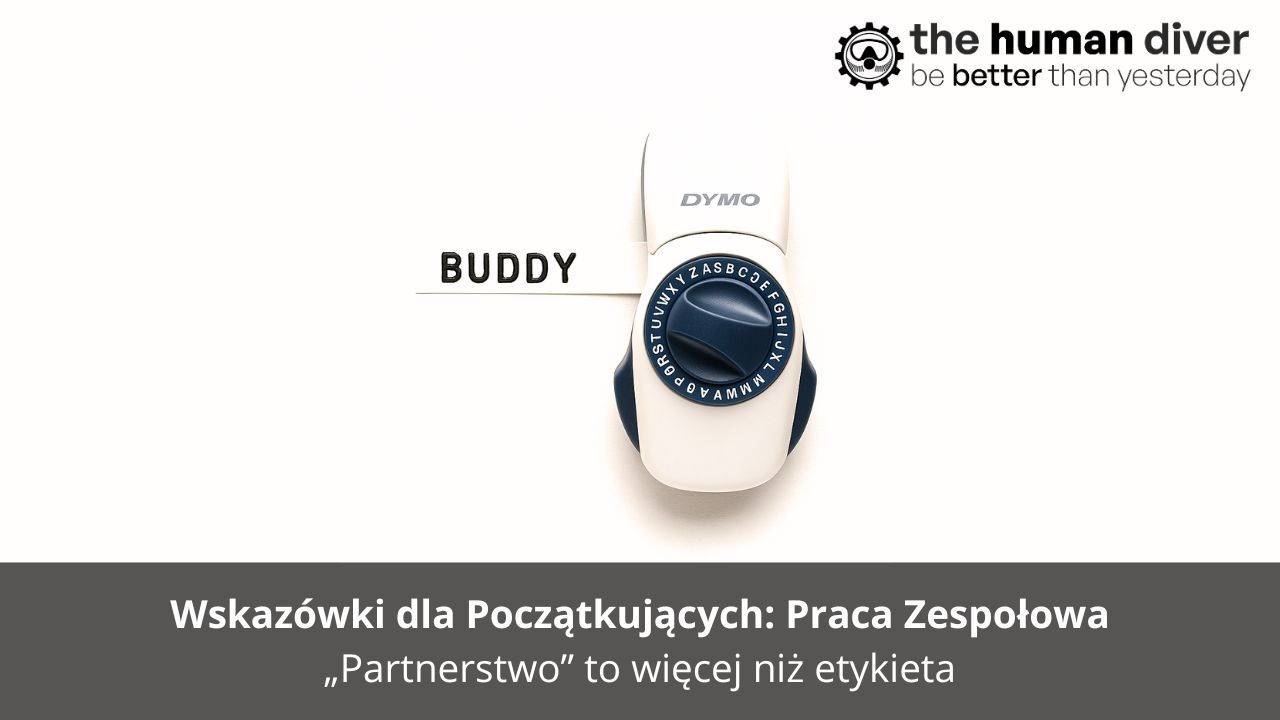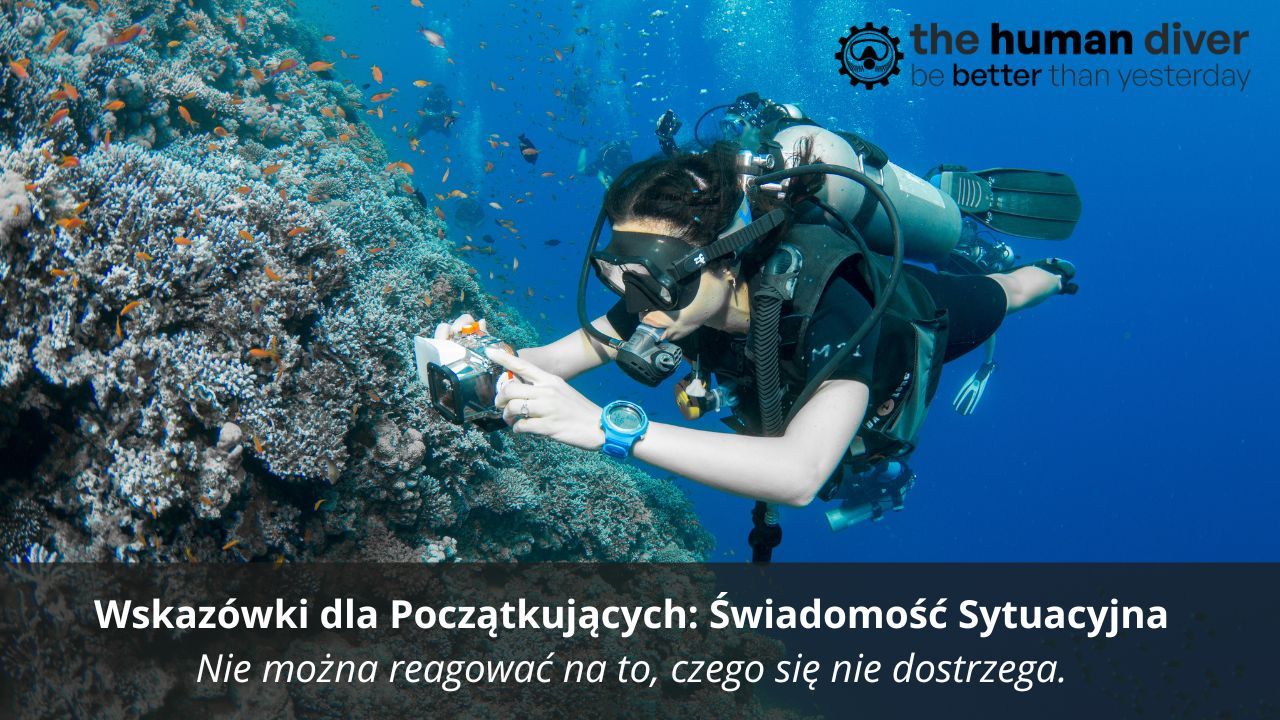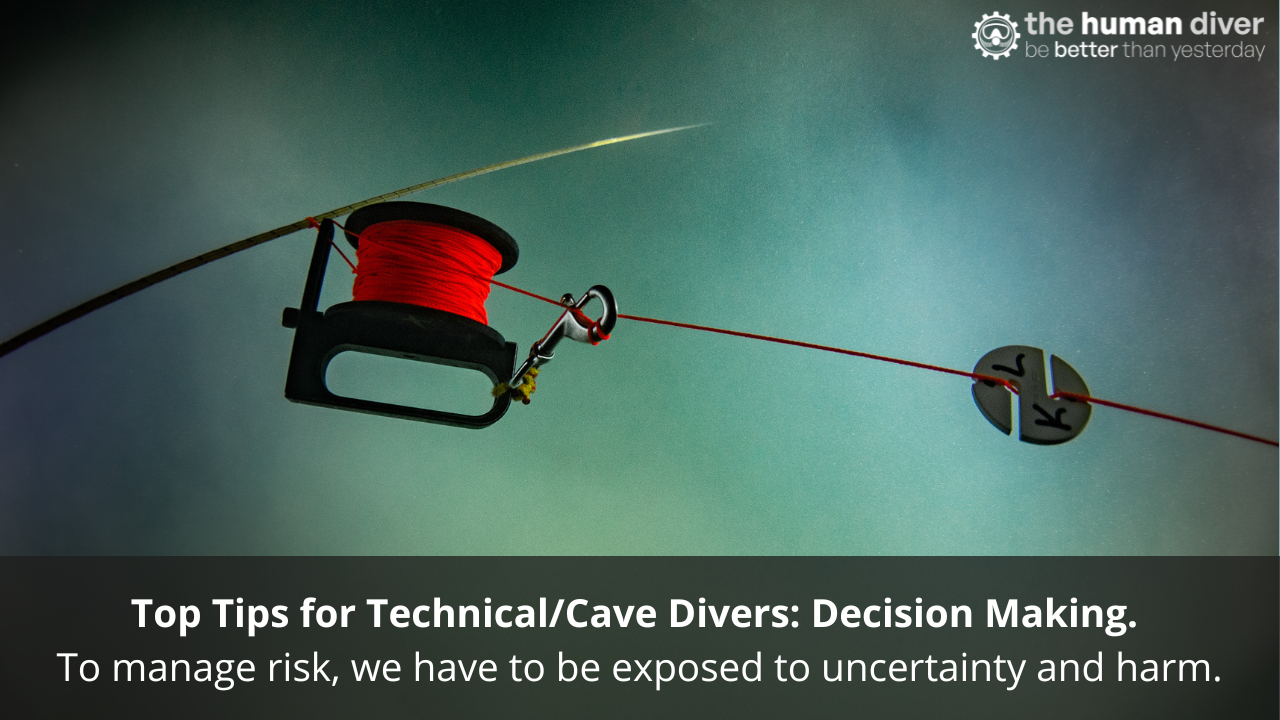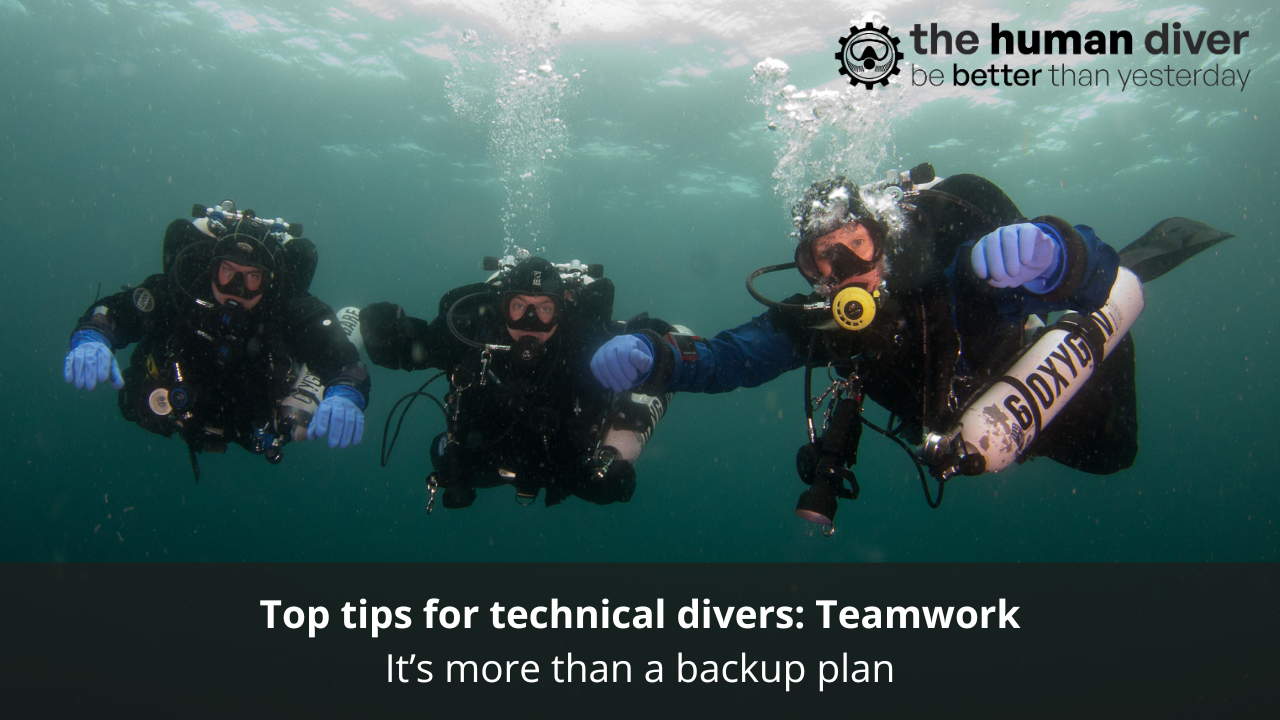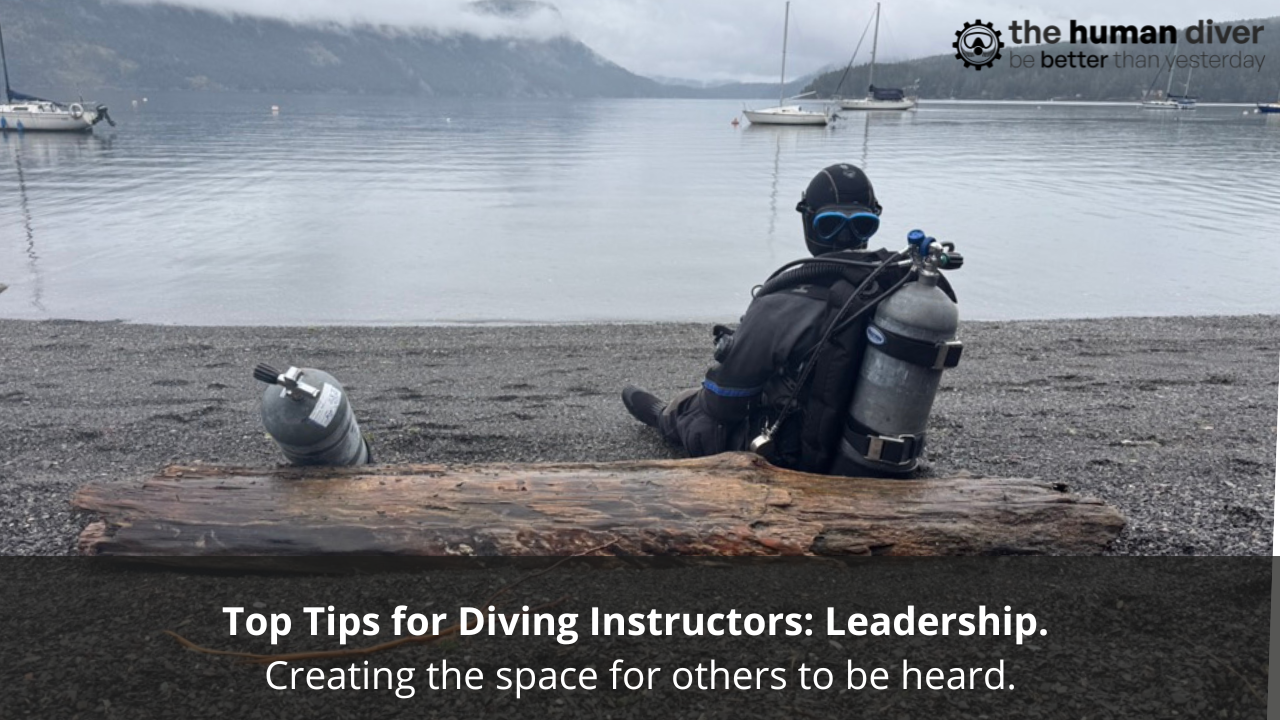
Standards- why do we have them and what can we do if someone breaks them?
May 08, 2024Living and working in a very active diving area, I frequently hear people talking about courses they’re doing and what they’ve had to do to achieve certification. Sadly, based on not only that but also what I see in the water, it appears that standards often aren’t followed. As an outsider observing it, I can’t say for certain what has happened- I rarely know exactly what course they’re doing, or with which agency. However recently I was a student on a recreational level course and found myself in the position where I was fairly sure that standards had not only been broken, but what they were doing was dangerous. So what can we do when this happens?
Firstly, I find it interesting that this is so much of a problem in diving. I have taught a large number of other outdoor sports and can’t think of one where there was so much discussion about whether instructors were maintaining standards or not, let alone if a course was safe. I believe this is because of visibility, when we’re underwater no one else can see what is happening, compared with kayaking for example, where anyone in the vicinity can both see and hear what is going on. This ties in with Gareth’s recently published thesis, titled “Story Telling to Learn: What happens underwater, stays underwater”. I also think it may be down to the pressure to certify, which comes from the agencies. In rock climbing (in the UK at least, I can’t speak for other countries), if you take a course the only reason to pass a student is if they have completed the skills. You don’t gain anything from certifying the student (or not) and often there aren’t even official certificates; people are only taking a course in order to learn a new skill, not to receive a piece of plastic. Novices progress at a rate that suits them and if they wish to use a new piece of equipment, learn some new knowledge or a new skill then they decide how to go about that, either by learning with an instructor, or researching it themselves and having an experienced, competent friend help them. As a rock climber, I never held any certifications for it until I became an instructor and was judged ready to begin my instructor course based on my past experience which was proved by my logbook. If I had turned up to the course and been unable to demonstrate the skills required, I would simply have been kicked out and told to come back when I’d had more practise.

In diving, an instructor is incentivised to issue certifications to prove their own experience. If an instructor wants to move up to the next level, they have to have issued x number of certifications. Moving up to the next level is seen as a prestigious thing to do. Because every tiny detail has its own course, students are discouraged from learning without doing an official course. Please don’t get me wrong, I do think official courses are necessary at some levels but we now have so many that it has become ridiculous. I have met students who have a hundred dives, where almost every one of the dives has been as part of a course. Ironically, they often don’t know how to dive just as part of a buddy pair because it’s been so long since they did it on their open water course that they’ve forgotten (if they have even ever done it at all).
This has forced us to become obsessed with standards, to rigidly follow the prescribed syllabus for every little step. And it has produced divers who are only focused on reaching the next level, who become instructors who do the same. This culture is an endless circle, making it hard for someone to say “I just want to improve my own skills”, because they will then be encouraged to sign up for the next course that will give them a cert card saying they’ve done just that in the space of a weekend (where as they may have only learnt skill x,y and z, and even then may not have had chance to properly practise it in order to be able to do it well), rather than allowing them to progress at their own pace, making mistakes and gaining experience until they can do the new skills proficiently. Trying to encourage people to simply practise or to gain more experience rather than push quickly through courses can cause people to blame you for “gatekeeping” and preventing them from progressing. The only way to make a big change is to change the culture, help people see that there are other ways of doing things but only if we accept we are responsible for our own progression and that buying a certification card actually isn’t the best way.

For now, we are stuck with this system, so we do need to make sure that as a minimum it works to keep people safe. And for that reason, we do need to care about standards.
Most standards are put in place to ensure that instructors who have been trained under the current system (ie. the one in which they may have progressed very quickly through courses with only the minimum amount of experience) can keep every student safe (barring unforeseen medical issues or accidents). If we see an instructor breaking the standards we first need to know if they have actually been broken or not. Finding out what agency the instructor is teaching under and what course they are teaching is easy if you are the student but if you’re not it’s far too easy to make assumptions. Of course, most students aren’t able to judge if a course is safe or not, as they are relying on their instructor to look out for them. This is one reason so many violations go unnoticed. The next is knowing what the actual standards are. Some agencies are very open with their standards and share them to the public, some are only available to the student and some will only share them with the instructor, not very useful if you’re a student trying to find out if your instructor is doing what they should be doing. Once you are sure standards have been broken my recommendation would be to approach this with the view to educate, not punish. People who are scared of punishment tend to try and hide mistakes, whereas those who are allowed to use them as a learning opportunity are more likely to improve. (Again, this doesn’t mean people who are guilty of causing accidents shouldn’t be held accountable. For more information on this, there are lots of blogs about Just Culture here.)
Most of the agencies have some form of quality assurance through which complaints or standards violations can be reported but this may end up with a range of things happening; from absolutely nothing (and the instructor not even hearing about it), to them being struck off. So start with the instructor. If possible, have a chat with them in person. Find out if they are aware that they have not been teaching the course correctly. Some may not be aware of the standard, particularly if it has changed recently (instructors from all agencies are required to ensure they keep up to date but if you have been reading this blog for any length of time you will be aware of the many reasons they may not have done so). They may admit to knowing, but have pressure on them that makes it difficult for them to follow the correct procedure. They may have simply forgotten.

If this doesn’t work (they refuse to engage or flat out deny a problem), try talking to the dive centre. A good dive centre will want to learn and improve. A poor dive centre may think you are just looking for retribution and sack the instructor, knowing they can simply hire another (which is another cultural problem diving has). Sadly, if the instructor has made a mistake that is dangerous and they refuse to acknowledge it or change, it may be for the best that they are no longer able to teach so that they can’t put any other students in danger.
If none of these work, then it needs to be escalated to the agency.
If you have had to approach the centre or agency, do your best to get feedback on what they are doing to ensure the instructor follows standards in the future.
There are many things that stop us from doing any of these steps. If a student passes a course, there’s the fear they may get their card taken away from them. They may be worried about the instructor losing their job. They may be worried about getting a negative reaction from the instructor, centre or even agency. They may think it was too long ago. It is worth remembering that it is not only one student who is affected in situations like this. It is highly likely that if an instructor breaks standards once, they are likely to do it again and next time it could cause an accident.
This system we have is far from perfect. But if we can at least be willing to try and build a Just Culture, where we look at the context in which people do things (whether that’s an accident, teaching a course, or setting up a rebreather), we can understand that people make mistakes and by trying to help them learn, rather than focus purely on punishment, we can improve the system for everyone, students, instructors, even agencies.

Jenny is a full-time technical diving instructor and safety diver. Prior to diving, she worked in outdoor education for 10 years teaching rock climbing, white water kayaking and canoeing, sailing, skiing, caving and cycling, among other sports. Her interest in team development started with outdoor education, using it as a tool to help people learn more about communication, planning and teamwork.
Since 2009 she has lived in Dahab, Egypt teaching SCUBA diving. She is now a technical instructor trainer for TDI, advanced trimix instructor, advanced mixed gas CCR diver and helitrox CCR instructor.
Jenny has supported a number of deep dives as part of H2O divers dive team and works as a dive supervisor and safety diver in the media industry.
If you'd like to deepen your diving experience, consider taking the online introduction course which will change your attitude towards diving because safety is your perception, visit the website.
Want to learn more about this article or have questions? Contact us.

